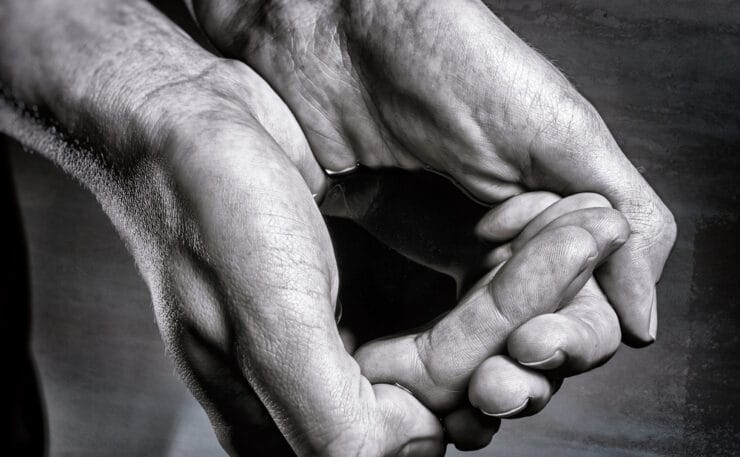In last week’s newsletter I talked about why food – particularly sugar – can be such a powerful draw at the end of the day. This is often a time when we long to let down and receive rest and comfort after a day of being ‘on.’
And this is often when sugar cravings are off the charts! That’s because food is a readily available, convenient way of coming down.
This insight can be very helpful and supportive in finding ways to meet these needs to rest and receive – what are called our dependency needs in attachment science – without sugar. We need places in our lives where we can let down and be cared for.
But this shift is vulnerable. It’s much more vulnerable to receive from another than to be in charge – even if we’re frustrated and exhausted from too much responsibility. We may have strong instincts telling us that sugar is a more sensible place to let down, due to past experiences where we learned it wasn’t safe to depend.
So when letting down and receiving care from others feels impossible, sugar steps in to fill the gap. Later, we may dislike and shame ourselves for overeating. But when we’re caught in this essential need for rest, in the moment, it wins.
The key doorway for healing
At this point in our journey, we face a crucible: perhaps the most important doorway for healing. Moving through this crucible is essential if we want to heal painful patterns of overeating.
It’s what my mentor, Dr. Gordon Neufeld, calls, ‘facing what doesn’t work,’ and it’s how we let go of addictive patterns with food.
This is where we face futility: the futility that the overeating doesn’t really meet our needs, and that it’s also causing harm. This is how we stop doing the same thing, over and over: trying to fill our holes with sugar, not getting what we really need from the food, then hating ourselves for the sugar bingeing, and feeling hopeless to change.
“It’s hard to get enough of something that almost works”
All addictions have, at their core, something that doesn’t work – something that causes harm, and something that isn’t truly meeting the need. As addiction expert Dr. Gabor Mate says, “It’s hard to get enough of something that almost works.”
That’s true if our addiction is to sugar, to food, to having a certain body size, to alcohol, or to work.
When we heal an addiction, we’re replacing the thing or substance that brought us comfort, warmth, connection, pleasure, belonging, understanding, or safety with places of true refuge: relationship with safe others, relationship with ourselves, relationship with the living world, and relationship with spirit.
This process is simple, but isn’t easy – it can bring up a lot of grief. That’s why we need lots of support to let go of food: we need a place to cry our tears and face the sadness of letting go of something that’s meeting so many of our needs.
I’ve cried so many tears over the loss of my friend, sugar, and my friend, food. I had to go through many rounds of futility to accept that the bingeing, restricting, overeating, and sugar obsessing didn’t work.
In the wake of these tears, we have acceptance, and peace. But the only way out is through.
The end result is transformation: we become changed by facing the limits in our lives. And this soft, malleable, transformed heart and mind is what is stronger than the addiction to food.
Join me for a free webinar
In a few weeks I’m hosting a free webinar, Facing What Doesn’t Work: How to Let Go of Food, where you’ll learn about the letting go and unwinding process from food. You’ll learn more about this process of facing what doesn’t work so you can support your healing and transformation.
I love sharing this process because it makes the healing journey so much easier and lighter.
We’ll be meeting on Tuesday, April 2nd from 2 to 3 pm CDT. The webinar will be recorded if you can’t make it, but I encourage you to come live – you’ll have a chance to ask questions and practice the letting go process with the group. You can
sign up for the webinar here.
This free webinar is open to all, so please share it with those in your circle who might be interested. This process is how the brain prunes out other addictive habits, and not just with sugar. So the webinar can help with other addictions, too.

